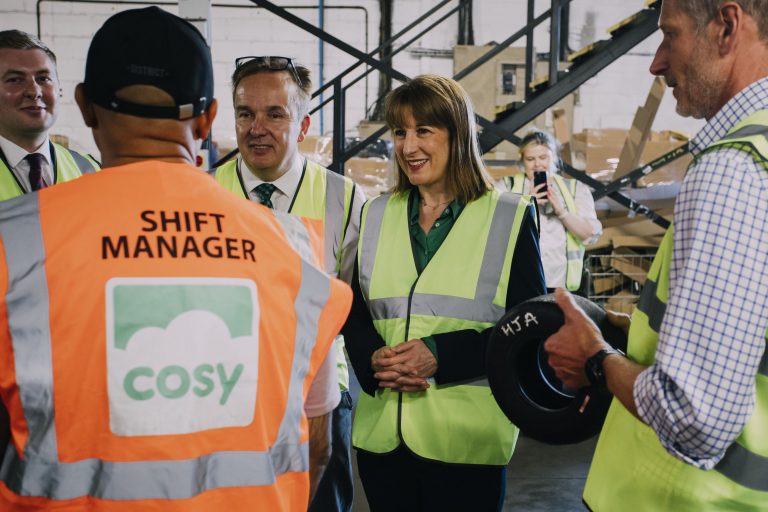- Phase two of the Pensions Review to explicitly examine how workplace pension changes impact small employers and learn from how auto-enrolment has been rolled out until now. The review must look closely at the financial and admin burden on small businesses, including the cost of advice, running payroll, and getting to grips with the rules before bringing in any new proposals.
- Ministers to commission a full cross-cutting economic assessment before any changes to pension rules are made, which includes the impact of recent rises in National Insurance and the National Living Wage, to ensure small firms are not hit with unaffordable costs or forced into tough choices like raising prices or cutting jobs. Last November, the Labour Government said it would only make changes to auto-enrolment if the impact on businesses was fully considered.
- No changes be made to the earnings threshold, no increase to employer contributions and no lowering of the age limit before the economic assessment is complete.
- The Government to convene regulators, including The Pensions Regulator and the Financial Conduct Authority, and industry stakeholders, to simplify pension rules and provide clearer guidance for small employers, reducing complexity and unnecessary admin. This would be a pro-growth, pro-employment move.
- When considering pensions adequacy, the Government should look beyond just increasing contributions – considering scheme performance, investment returns and the real-world impact on small employers and employees. Poor fund performance leading to lower pensions later in life should not be masked by simplistic debates on contribution levels.
Pension reforms risk higher prices, fewer jobs and slower growth, warns FSB
Phenna Group makes strategic acquisition
Enter outstanding schemes for Commercial Development of the Year at the East Midlands Bricks Awards 2025
 Winners will be revealed at a glittering awards ceremony on Thursday 2nd October, at the Trent Bridge Cricket Ground (4:30pm – 7:30pm) – an evening also offering an opportunity to establish new connections with property and construction professionals from across the region, and hear from keynote speaker Councillor Nadine Peatfield – Leader of Derby City Council, Cabinet Member for City Centre, Regeneration, Strategy and Policy, and Deputy Mayor of the East Midlands.
Other award categories open for entry include: Most Active Agent, Developer of the Year, Responsible Business of the Year, Residential Development of the Year, Contractor of the Year, Deal of the Year, Architects of the Year, Excellence in Design, and Sustainable Development of the Year. All entry forms can be accessed here.
The Overall Winner award will also be presented at the event. This award cannot be entered, with the winner selected from those nominated for the event’s other awards. The Overall Winner of the East Midlands Bricks Awards 2025 will also receive a grand prize of a year of marketing/publicity worth £20,000, with the opportunity to split or gift the marketing to a charity of your choice.
Winners will be revealed at a glittering awards ceremony on Thursday 2nd October, at the Trent Bridge Cricket Ground (4:30pm – 7:30pm) – an evening also offering an opportunity to establish new connections with property and construction professionals from across the region, and hear from keynote speaker Councillor Nadine Peatfield – Leader of Derby City Council, Cabinet Member for City Centre, Regeneration, Strategy and Policy, and Deputy Mayor of the East Midlands.
Other award categories open for entry include: Most Active Agent, Developer of the Year, Responsible Business of the Year, Residential Development of the Year, Contractor of the Year, Deal of the Year, Architects of the Year, Excellence in Design, and Sustainable Development of the Year. All entry forms can be accessed here.
The Overall Winner award will also be presented at the event. This award cannot be entered, with the winner selected from those nominated for the event’s other awards. The Overall Winner of the East Midlands Bricks Awards 2025 will also receive a grand prize of a year of marketing/publicity worth £20,000, with the opportunity to split or gift the marketing to a charity of your choice.
The East Midlands Bricks Awards 2025
What: The East Midlands Bricks Awards 2025 When: Thursday 2nd October (4.30pm – 7.30pm) Where: Derek Randall Suite, Trent Bridge Cricket Ground, Nottingham Keynote speaker: Councillor Nadine Peatfield – Leader of Derby City Council, Cabinet Member for City Centre, Regeneration, Strategy and Policy, and Deputy Mayor of the East Midlands Tickets: Available here Dress code: Standard business attire Thanks to our sponsors:











To be held at:

Midlands leads new era of clean energy growth as potential sites assessed for nuclear power stations
KPMG expands Nottingham footprint with new city centre office
Government steps in to support at-risk jobs following refinery insolvency
The UK government is stepping in to support the continued operation of the Prax Lindsey Oil Refinery in Immingham, North East Lincolnshire, after its owner went into administration, putting 420 jobs at risk. Prax Group, which acquired the refinery from Total in 2021, filed for insolvency last Sunday, prompting concerns from union representatives that as many as 1,000 jobs, including those of contractors and supply chain workers, could be affected.
The government has allocated funding to the official receiver to ensure the refinery’s safe operation. The Department for Energy Security has confirmed the refinery suffered losses of approximately £75 million from the 2021 acquisition to February 2024. Despite reassurances from Prax that no immediate closure was imminent, the company shifted its position last week, stating that it could no longer continue as a going concern.
Energy Minister Michael Shanks criticised Prax’s lack of transparency about its financial gap and its failure to cooperate in finding a solution. The government is now looking for potential buyers for the refinery and other uses for the site if a sale cannot be secured. The government has pledged to maintain energy supplies and protect the local community while supporting affected workers.
Trade unions, including Unite, are calling for immediate action to protect jobs and ensure the refinery’s continued operation. Concerns have been raised about the long-term future of the site, which is strategically important for both fuel production and local employment.
Chesterfield businesses urged to tap into £165bn industrial strategy
The UK Government’s newly unveiled Modern Industrial Strategy offers Chesterfield businesses a wealth of opportunities across sectors like advanced manufacturing, clean energy, life sciences, and digital innovation. The £165bn investment plan sets out a ten-year vision designed to fuel long-term growth.
Key measures include large-scale investments: £39bn for advanced manufacturing, £30bn for clean energy, and £31bn for creative industries, alongside £65bn directed at professional and business services. A significant £1.2bn per year is allocated for skills development, and £99m is earmarked for SME manufacturers through the expansion of the Made Smarter programme.
The Government has also introduced a new Business Growth Service, aiming to enhance access to support and funding, as well as reforms to planning procedures for faster project delivery.
Chesterfield’s established manufacturing sector and reputation for innovation make it a prime candidate to benefit from this strategy. However, the East Midlands Chamber is calling for further clarity on how the strategy will be delivered to ensure regional businesses can capitalise on these opportunities.












